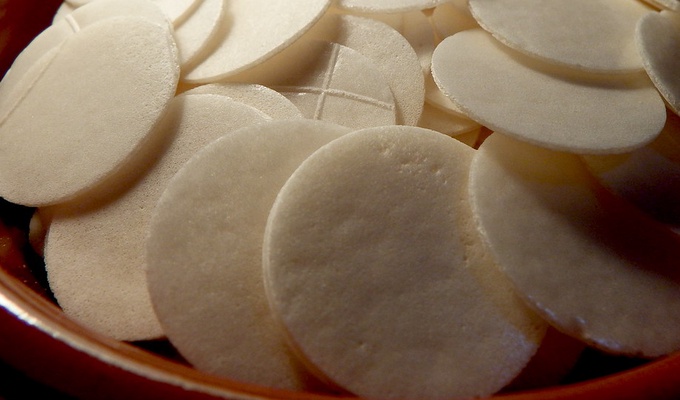Host wafers are thin, unleavened crackers composed primarily of wheat flour and water, traditionally used in Christian, particularly Roman Catholic, Eucharistic ceremonies. Their origins trace back to Jewish matzah, reflecting early Christian adaptation of Passover rituals.
Host wafers are made without yeast or leavening agents to symbolize purity, following liturgical requirements established by church councils such as the Fourth Lateran Council (1215). Production often occurs in convents, monasteries, or specialized bakeries, using iron molds to create uniform, round disks, sometimes bearing religious symbols. These wafers must be handled and prepared under strict conditions to maintain their sacramental validity.
The host wafer mold was an early version of what eventually became the waffle iron.
